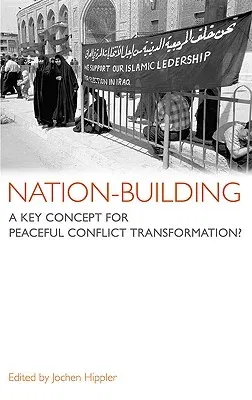Nation-Building: A Key Concept For Peaceful Conflict Transformation?Paperback, 1 August 2005

Qty
1
Turbo
Ships in 2 - 3 days
In Stock
Free Delivery
Cash on Delivery
15 Days
Free Returns
Secure Checkout
Print Length
216 pages
Language
English
Publisher
Pluto Press (UK)
Date Published
1 Aug 2005
ISBN-10
0745323359
ISBN-13
9780745323350
Description
Product Details
Book Format:
Paperback
Country of Origin:
US
Date Published:
1 August 2005
Dimensions:
21.79 x
13.56 x
1.47 cm
ISBN-10:
0745323359
ISBN-13:
9780745323350
Language:
English
Location:
London, England
Pages:
216
Publisher:
Weight:
349.27 gm

